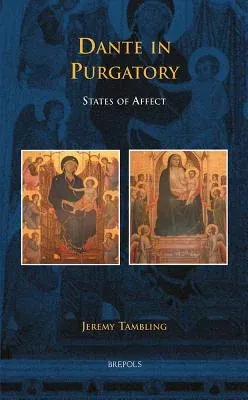This volume provides an advanced survey of Dante studies and offers a
new, detailed, and accessible reading of his Purgatorio, making this
very rich text freshly available to an English-speaking readership.
Through analysis of a variety of emotional states across Dante's three
major works - the Purgatorio, Inferno, and Paradiso, and in his minor
works, such as the Rime and the Convivio - Dante in Purgatory: States of
Affect contends that emotions are historically constructed at different
moments. The book also demonstrates that while Dante presents some
emotions as defined and distinct, he depicts others as blends of several
states of feeling, as emotions which are in process or metamorphosis. In
particular, the author examines the seven cardinal vices ('seven deadly
sins') amid a wider discussion of states of affect. He argues that the
emotional states associated with these vices are different from
contemporary conceptions of affective states. He compels us to
acknowledge that there is a history of both the emotional states
themselves and the methods with which we describe them. Above all, his
study shows that there is a history of emotions which is part of the
history of a European acquisition of a subjective sense of the self. To
historicize emotion thus requires that the 'human' becomes increasingly
defined, as the subject is ascribed further interior qualities which
must be named. Dante in Purgatory is thus relevant not only to readers
of Dante, but also to any reader interested in thinking about emotion
and affectual states and how these can be described, and how they can be
conceptualized.

